VOL- 7 ; ISSUE- 3, PUNE RESEARCH - An International Journal in English (ISSN 2454-3454) JIF 3.02
7.3 ENGLISH
Area of Article : ALL
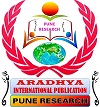
VOL- 7 ; ISSUE- 3, PUNE RESEARCH - An International Journal in English (ISSN 2454-3454) JIF 3.02
7.3 ENGLISH

VOL- 7 ; ISSUE- 3, PUNE RESEARCH - An International Journal in English (ISSN 2454-3454) JIF 3.02
7.3.1 ENGLISH
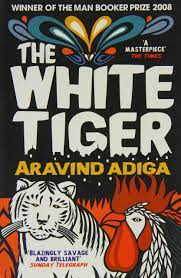
The
White Tiger is Aravind Adiga's Man Booker Prize-winning debut novel, released
in 2008. The current novel depicts a side of Indian culture that is withheld
from society. There is a massive chasm between rich and poor India since
globalization. A small group of wealthy individuals wishes to exert power over
India's vast population. The writer has deftly provided the reader with the
existence of servitude, faith, injustice, social caste structure, and poverty
in India. This novel is a success story told by the lead character, Balram
Halwai, in a letter to Chinese Premier Wen Jiabao. Balram Halwai. Although
Balram was born and raised in a low-income family, he does not wish to carry on
his father's conventional company. He hopes to be clear of any societal
obligations enforced by servitude. He expects to be clear of Rooster Coop in
order to become a prosperous businessman. He avoids any impediments along his
road to prosperity. He rises from his sweet-maker caste to become a wealthy
businessman. He repays his family's debts and also kills his boss, Mr. Ashok.
He opposes both relatives and social controls on him. To the opposite, he
rationalizes his desperate desires for dominance and pelf without any regret
for his heinous acts. In terms of his efforts and achievements, he has earned
the moniker "White Tiger," which is only seen once in a lifetime.
Keywords: Postcolonial, dilemma, servitude, social
structure, Rooster Coop, deprivation, subjugation
VOL- 7 ; ISSUE- 3, PUNE RESEARCH - An International Journal in English (ISSN 2454-3454) JIF 3.02
7.3.2 ENGLISH
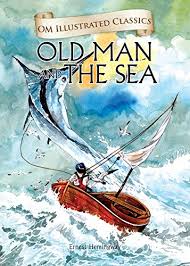
The
Old Man and the Sea is one of the masterpieces of Hemingway. The story though
is a fiction is based on real event and thus holds much truth. Hemingway while
wandering in Cuba heard of this event and wrote an amazing book inspired by it.
The writer has used many symbols in this novel which increases the artistic
value of the book. It is a book full of powerful emotions and depicts a true
picture of every man’s struggle in life.
Keywords-Symbols, Earnest Hemingway, The Old Man and
the Sea, Manolin, Old man, Sea, Fish, Fishing, Marlin, Mast, Harpoon, Shark.
VOL- 7 ; ISSUE- 3, PUNE RESEARCH - An International Journal in English (ISSN 2454-3454) JIF 3.02
7.3.3 ENGLISH
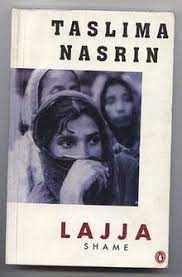
Women
have played a variety of roles in all cultures, including wives, sisters, and
mothers, all while being oppressed by paternal society. In Indian culture, the
father or eldest male is the family's head. This head is assessed during the
male line, and as such, it becomes dynamic with conjugal issues exclusively in
joint families. The aim of this paper is to examine the portrayal of women in
Taslima Nasrin's novel Lajja. The misfortunes of female characters are depicted
in the integrated book, either as a result of religious commitment or as a
result of male dominance in the home.
Keywords: Depiction, numerous, misfortune, domestic and
conjugal.
VOL- 7 ; ISSUE- 3, PUNE RESEARCH - An International Journal in English (ISSN 2454-3454) JIF 3.02
7.3.4 ENGLISH
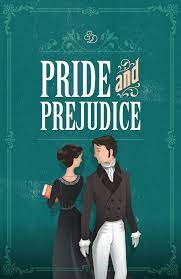
Literature has always acted as a mirror to the
society. As the human society evolved slowly and gradually, literary writings,
especially the novels played a pivotal role in reflecting and expressing the
social scenarios and defining the human psyche. Women are the most integral
part of the social discourse. Since centuries, they have strived hard in search
of their true identity and worth. Turning through the pages of literary
history, we can easily trace the footmarks of the transformation in the
position of the females through societies and ages. Women writers and critics
have given a glimpse of the social norms and structures prevalent during their
times through their writings. Jane Austen is one such poignant writer from the
Romantic Period of English Literature who broke apart from the traditionally
accepted storyline through her youthful spirits and portrayal of strong female
protagonists, who could think for themselves and take their own decisions. Born
in a society that hugely discriminated between the rights given to men and
women, Austen, since her childhood developed an internal anguish against the
unjust social system. This even resulted in her being unmarried throughout her
life and continued writing as a profession to be financially independent.
Austen always advocated marriage in her novels, but she believed in marriage
for love and not for gaining social status. Women during Austen’s times were
expected to be submissive and timid. They were considered incapable of thinking
wisely and hold own individuality. Her novels parodied the then conventional
novel plot of love, marriage and courtship through youthful playfulness and
subtle irony. Her female protagonists were the heroes of her novels; they were
progressive as well as headstrong. They did not believe in social conformity in
the male dominated society.
Keywords -:
Feminism, identity, society, male-dominated, novels, satire
VOL- 7 ; ISSUE- 3, PUNE RESEARCH - An International Journal in English (ISSN 2454-3454) JIF 3.02
7.3.5 ENGLISH
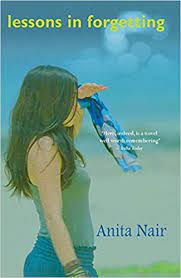
The
production of the gendered spaces is a hierarchical and oppositional system in
the realms of public space of male domination over the private space of female
subordination. The male gender is always considered as a superior than the
female gender. Women always fight to get the proper place in society but male
gender always dominates them to show their supremacy. Space and gender are
interrelated to each other as both the phenomenon has connected with the power
relations. The relation between masculine space and feminine space create the
contradiction in both public and private realms that touches the gender
concerns. It is considered that gender is the synonym for sex, as it identifies
the different contradictory sexes i.e. man and woman. But according to the
varied perspectives of the gender, it is quite different and dissimilar to the
concept of the sex because sex refers to the biological realities of the two
opposite genders-male and female and gender refers to the socially constructed
phenomenon. The biological reality and socio-cultural perspective of the
masculinity and femininity create the ambivalence in two opposite sexes. The
present paper attempts to analyze the construction of space and gender issues
in Anita Nair’s The Lessons in Forgetting.
Keywords: Space, Gender, Feminine Space, Masculine
Space, Male Domination
VOL- 7 ; ISSUE- 3, PUNE RESEARCH - An International Journal in English (ISSN 2454-3454) JIF 3.02
7.3.6 ENGLISH
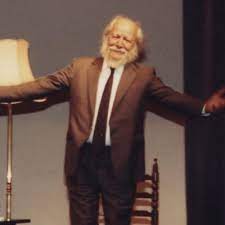
William
Golding is known as a prominent writer of English fiction. He is judged as an
incredible fabulist, a symbolic essayist or a mythmaker. In this regard his
inclination is to be called as an author of 'mytho poetic control'. His books
are translated in the light of philosophy. Golding’s vision about human
instinct is very well reflected in his fictions, in a general sense he has
confidence in God, yet he questions if God has faith in him or in humankind.
His fictions are brimming with Christian imagery yet he bids to each sort of
faith in his fiction. His propensity is toward the submissive and the soul. He
never endeavors to instruction. There is no agreement in his fiction. He opens
human instinct for the reader so well that the reader is stunned subsequent to
perusing any Golding epic and starts to scrutinize his own tendency and his job
in the unceasing catastrophe on the earth-organize.
Keywords: Imagery, Christ, good, evil, loss, innocence,
chaos, experience etc.
VOL- 7 ; ISSUE- 3, PUNE RESEARCH - An International Journal in English (ISSN 2454-3454) JIF 3.02
7.3.8 ENGLISH

The
present study aims to assess the language components of ELT textbooks of
secondary schools in Yemen. The population of the present study is the teachers
of secondary schools in Yemen. The study uses a sample of 100 teachers teaching
11th and 12th grades of secondary schools in Yemen. The
study utilizes a questionnaire survey which is consisted of 2 pages and 23
questions related to language components. All questions are scaled based on
five point-Likert scales ranging from poor (1), fair (2), average (3), enough
(4), and good (5). Descriptive statistics, including frequency analysis, mean,
minimum, maximum, normal distribution, and figures, are used to estimate the
results. The results reveal that teachers perceive average materials of
grammar. In the same context, the results indicate that teachers perceive fair
materials of pronunciation. Likewise, the results found that teachers perceive
fair materials of vocabulary materials. Similarly, teachers perceive fair
materials of exercises and activities. The present study contributes to the
strand literature of ELT in Yemen. Very few studies have been conducted in this
regard in Yemen. Accordingly, the present study adds to the existing stock of
knowledge of ELT in Yemen. The results of the present study open an insight for
curriculum developers, teachers, and educational authorities to consider the
weak points in the textbook of secondary schools in Yemen and take the
necessary actions for improvement.
Keyword: Grammar; Pronunciation; Vocabulary; Exercises
and Activities; ELT textbooks; Secondary Schools; Yemen.
VOL- 7 ; ISSUE- 3, PUNE RESEARCH - An International Journal in English (ISSN 2454-3454) JIF 3.02
7.3.9 ENGLISH
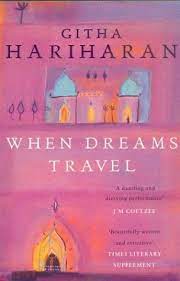
‘Humour’
and ‘wit’ are the extremely challenging assignments Githa Hariharan chooses to
take on dashingly in her fiction in order to set her expression free of the
monotonous strides and also to deride the social follies and unjust ideologies.
In her fiction one would never fail to locate the themes as varied as that of
corruption, nepotism, false pride, human arrogance, adultery and decline in
moral values being ridiculed robustly and hammered upon through this extremely
challenging approach. The present article seeks to critically examine as to how
these devices (‘wit’ and ‘humour’) are emphatically employed by Githa Hariharan
in her internationally acclaimed novel When Dreams Travel striving not only to explore
the obscure terrains of human psyche but also to deride the self-centered human
life that, in present day cosmopolitan society, stays eventually to be deprived
of ethical values. An effort has been made to evaluate as to how, by means of
these weapons, the author storms the human follies and the unjust ideologies,
without, however, compromising with the due clinical efficiency.
Key Words: Epigrammatic,
humour, wit, bondages, cosmopolitan, frivolities, shallowness,
VOL- 7 ; ISSUE- 3, PUNE RESEARCH - An International Journal in English (ISSN 2454-3454) JIF 3.02
7.3.10 ENGLISH
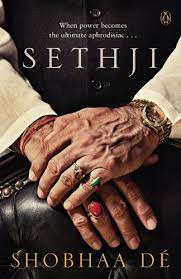
Present
research paper centers on the evolution of new woman in India. New women
presented in the select novel of Shobha De entitled Sethji. Various domains of
her growth i.e. social, political, and psychological remain the focus of the
present investigation. Shobha De provides complete freedom to her female
characters to overcome their difficulties whether they had to sell their souls.
The protagonist Amrita life, her predicaments and the passion to achieve the
power has been described in this research paper. The situation and condition in
her life were so adverse but she accepted the unalterable facts of life
confidently. She strives against the ravenous male – dominated society. She
breaks down all restricted unlawful boundaries by compromising her virginity
with the lustful maneuvers to sethji and assumes her goal to become powerful
women.
Keywords: Dark, immoral, constructive, politics,
marriage, remarriage, miserable, man –women relationship, lust, womanhood etc.
VOL- 7 ; ISSUE- 3, PUNE RESEARCH - An International Journal in English (ISSN 2454-3454) JIF 3.02
7.3.11 ENGLISH
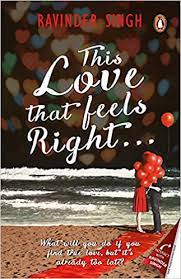
This
Present research paper spotlight the marriage and extramarital relationship in
the novel of “This Love that feels Right...” by Ravinder Singh. It is the story
of Naina Singhania. She is a twenty-five-year-old married young woman in Indian
a middle-class family. Her husband is a very busy businessman in real estate.
He has no time for family. At the last moment of his honeymoon, he postpones the
business deal. Naina breaks all of these social restrictions, custums and joins
Gym for her fitness and weight loss. She wears a fashionable and sports bra in
the Gym. She got a chance to love after marriage with another person who is not
her husband, who is a gym trainer Aarav. This Novel shows a mirror of Indian
society in the present era. Novelist Ravinder Singh portrait Indian middle-class
society young common women and their wish and desire about her life. Naina finds
the real meaning of marriage and true love and various aspect of life. The
present research paper aims to study marriage and extramarital relationships in
Ravinder Singh’s novel “This Love that feels Right…”
Keywords: Marriage,
Extramarital relationships, Gym, Society, Attraction.
VOL- 7 ; ISSUE- 3, PUNE RESEARCH - An International Journal in English (ISSN 2454-3454) JIF 3.02
7.3.12 ENGLISH
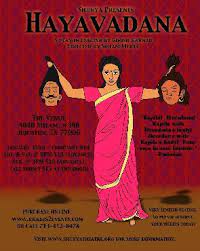
This paper attempts to bring out the position of
women in the plays of Girish Karnad with reference to his plays Hayavadana and
Nagamandala. Bringing out the ideas of Karnad on women and his views on this
paper attempts to bring out the position of women in the plays of Girish Karnad
with reference to his plays Hayavadana and Nagamandala. Bringing out the ideas
of Karnad on women and his views on their role in the society, this paper
examines how he presented the characters of women. With the help of instances
taken from the selected plays, this paper gives a clear view of Karnad’s mind
towards women. role in the society, this paper examines how he presented the
characters of women. With the help of instances taken from the selected plays,
this paper gives a clear view of Karnad’s mind towards women.
Key words: Feminism,
patriarchy, courageous, dominating, liberty, strength
VOL- 7 ; ISSUE- 3, PUNE RESEARCH - An International Journal in English (ISSN 2454-3454) JIF 3.02
7.3.13 ENGLISH

The present aim at studying Nigerian women in
the selected novels of Chimamanda Ngozi Adichie’s selected novels. This
research examines how Chimamanda Ngozi Adichie portrays the place women
characters of the Nigerian society in to the selected works of Chimamanda Ngozi
Adichie. The portrayal of women in the works of Adichie is relevant to
feminism, racism and womanism too. In the works of Adichie, women relentlessly
struggle to achieve much desired freedom from the rules of tradition,
sociopolitical and economic disempowerment, male oppression and racial
distinction
Key words: Purple
Hibiscus, Nigeria, Sexism, Gender, Psychology, Womanhood, Revolt Half of
a yellow Sun ,Americanah ,We Should All Be Feminists Etc.